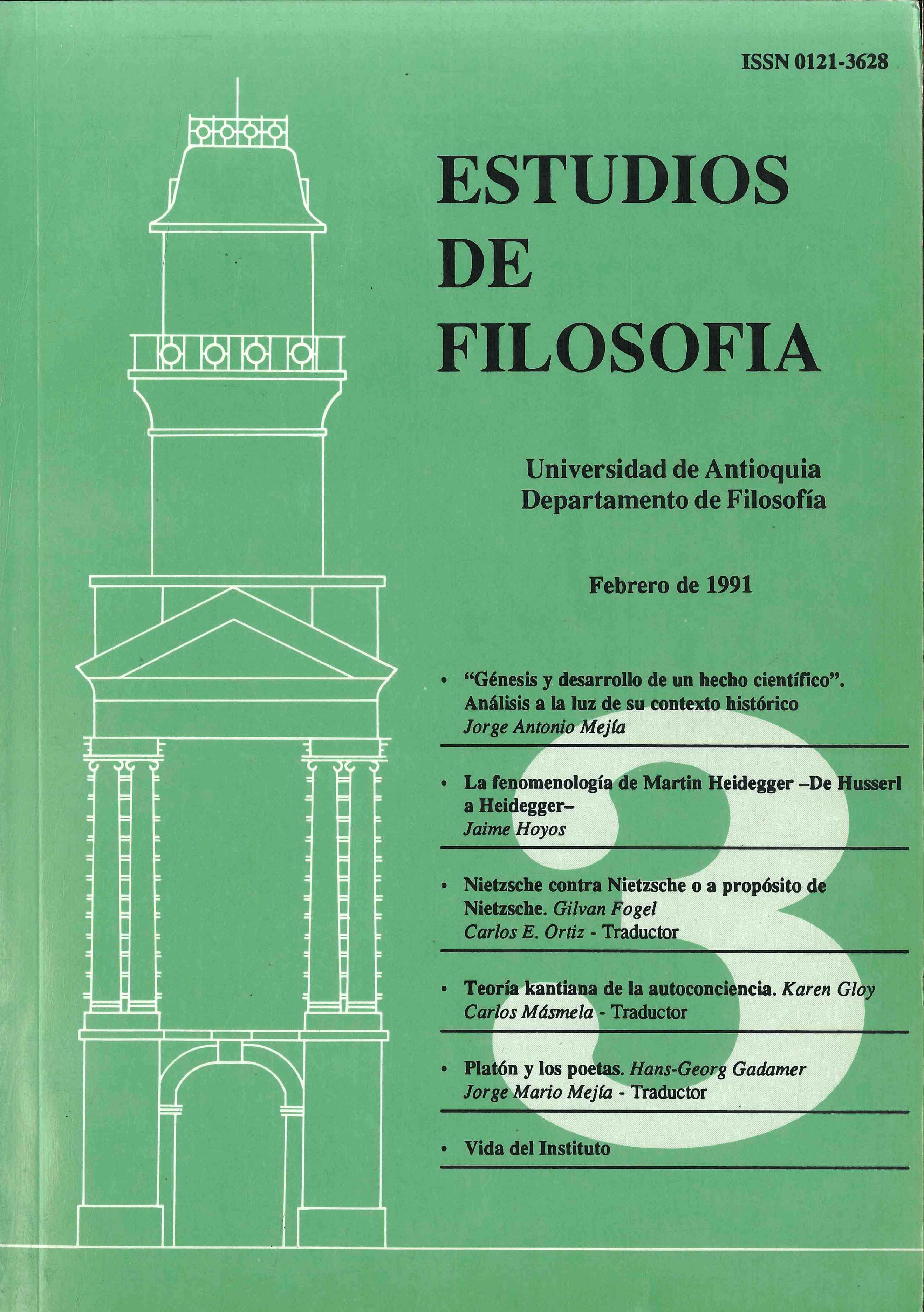Kant's theory of self-consciousness
DOI:
https://doi.org/10.17533/udea.ef.339709Keywords:
Kant, cociousness, self-conciousness, transcendetal idealism, metaphysicsAbstract
Properly speaking, there is no theory of self-consciousness in Kant, but there are elements leading to it, though problematic, due to their oscillating between a Cartesian past and a subsequent idealistic development. Such elements make part of the explanation undertaken by Kant of a system of objective knowledge. The structure of self-consciousness is that of a thinking self-relation: comprehensive, I-related or egologícal, spontaneously active and free, and self-reflective. The objective reference of self-consciousness guides Kant's original critical philosophical problematic towards an idealistic philosophy.
Downloads
Downloads
Published
How to Cite
Issue
Section
Categories
License
Copyright (c) 1991 Karen Gloy; Carlos Másmela Arroyave

This work is licensed under a Creative Commons Attribution-NonCommercial-ShareAlike 4.0 International License.
Authors who publish with this journal agree to the following terms:
1. The Author retains copyright in the Work, where the term "Work" shall include all digital objects that may result in subsequent electronic publication or distribution.
2. Upon acceptance of the Work, the author shall grant to the Publisher the right of first publication of the Work.
3. The Author shall grant to the Publisher a nonexclusive perpetual right and license to publish, archive, and make accessible the Work in whole or in part in all forms of media now or hereafter known under a Creative Commons Attribution-NoCommercia-ShareAlike (CC BY-NC-SA 4.0), or its equivalent, which, for the avoidance of doubt, allows others to copy, distribute, and transmit the Work under the following conditions: (a) Attribution: Other users must attribute the Work in the manner specified by the author as indicated on the journal Web site;(b) Noncommercial: Other users (including Publisher) may not use this Work for commercial purposes;
4. The Author is able to enter into separate, additional contractual arrangements for the nonexclusive distribution of the journal's published version of the Work (e.g., post it to an institutional repository or publish it in a book), as long as there is provided in the document an acknowledgement of its initial publication in this journal;
5. Authors are permitted, and Estudios de Filosofía promotes, to post online the preprint manuscript of the Work in institutional repositories or on their Websites prior to and during the submission process, as it can lead to productive exchanges, as well as earlier and greater citation of published work (see The Effect of Open Access). Any such posting made before acceptance and publication of the Work is expected be updated upon publication to include a reference to the Estudios de Filosofía's assigned URL to the Article and its final published version in Estudios de Filosofía.















